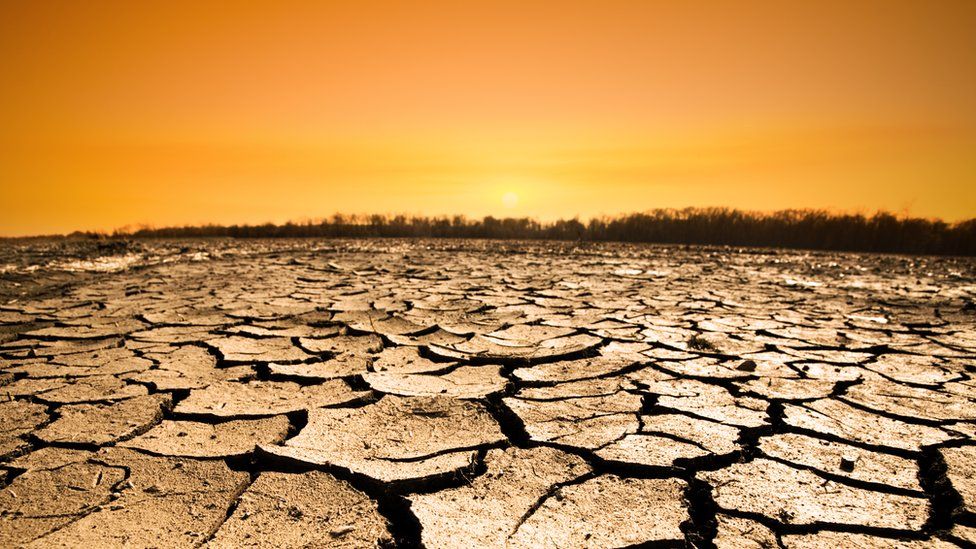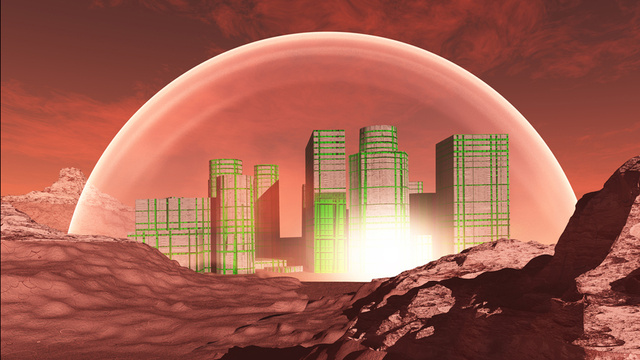= ASTRONAUTICAL EVOLUTION =
Issue 158, 9 July 2021 – 52nd Apollo Anniversary Year
| Site home | Chronological index | Subject index | About AE |
This post is also available on Wordpress
Planetopolis in an Age of Climate Change
Latest news
Following my previous post introducing the concept, I gave a talk on Planetopolis at the British Interplanetary Society’s “Beyond the Moon” symposium on 12 April.
A two-page spinoff article appeared in Spaceflight (July 2021, p.30-31).
A slightly tarted up version of my video talk can now be watched online:
Climate change
A point which I didn’t stress at the BIS, but which is actually a major part of the case for Planetopolis, is its relevance to the climate change issue.
Many predictions of the effects of industrial CO2 emissions show large-scale disruption to human society over the next 50 to 100 years. The UK Met Office points out:
“Nearly 4 in 10 people live within 100 kilometres from a shoreline and are at risk of flooding if sea levels continue to rise. […] As our climate warms and rainfall patterns change, it may be harder to grow enough food in some areas […] We expect most regions will experience more intense heatwaves.”
If these projections are borne out, there will be a need for housing and food production in higher altitude, less fertile areas, or possibly on the surface of the sea: in other words, locations which are warmer or cooler, more arid or more aquatic than those historically able to support large populations. But the world’s industrial energy economy will change only gradually, and fossil fuels will continue to be used for some time to come. So anyone concerned about the possible future effects of climate change would be well advised to invest their time and money researching methods of supporting developed human societies which are more self-contained and less dependent upon a clement local environment.
It would certainly make a lot more sense than campaigning to try to induce world leaders to accelerate the costly restructuring of their economies in the name of reducing greenhouse gas emissions – particularly when the largest national emitter by far is China (helpful charts are provided by the BBC).
The environmental campaign can only be effective if all the great powers take effective action. This is proving to be difficult, and a certain amount of future global warming is said to be baked in by now, due to emissions which have already gone into the atmosphere. That campaign is also based on the implicit assumption that natural climate change is at a standstill, and so humans can control the planetary thermostat merely by adding or subtracting greenhouse gases – a dangerous assumption in the light of past history, as well as in the light of the everyday experience of temperatures going up and down with changing cloud cover.
The programme of a company such as Planetopolis is an effective response to the current concerns with the climate in several ways:
- Planetopolis works with the existing trends of economic growth and technological progress – in particular, it is aimed at producing solutions which may be marketed worldwide to help grow the economy, rather than needing to be imposed by international agreements because they constrain the economy;
- It avoids wasteful conflict with existing vested interests, or with political leaders who prioritise national growth over environmental goals which they perceive to be unimportant or which obstruct their goal of geopolitical domination;
- It works towards solutions which work locally, regardless of what the rest of the world is doing;
- It works towards an extension of human capabilities which is valuable for the continued human habitation of Earth, regardless of whether the science of climate change is reliable – including the questionable assumption that constant proportions of greenhouse gases in the atmosphere cause a constant global mean temperature;
- It works towards an extension of human civilisation to the rest of the Solar System, thus towards an optimistic and open-ended concept of the long-term human future.
An environmentalist skeptic would no doubt criticise this programme by accusing me of trying to make the world safe for dirty industries and environmental criminals. That accusation might have some force if the environmentalist campaign to ban the use of all fossil fuels was proving to be effective, and if science had reliably established that natural climate change will be unable to harm human society for many centuries into the future.
But this cosy picture is questionable.
More at:
To make comments, please visit this post on Wordpress.
| Site home | Chronological index | About AE |

